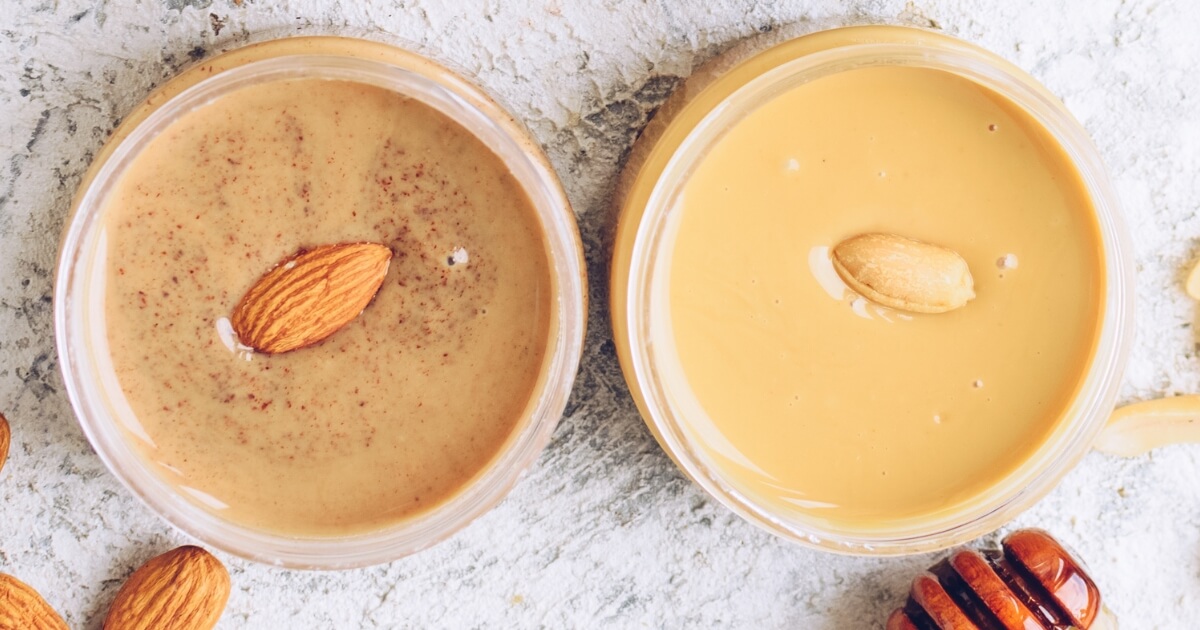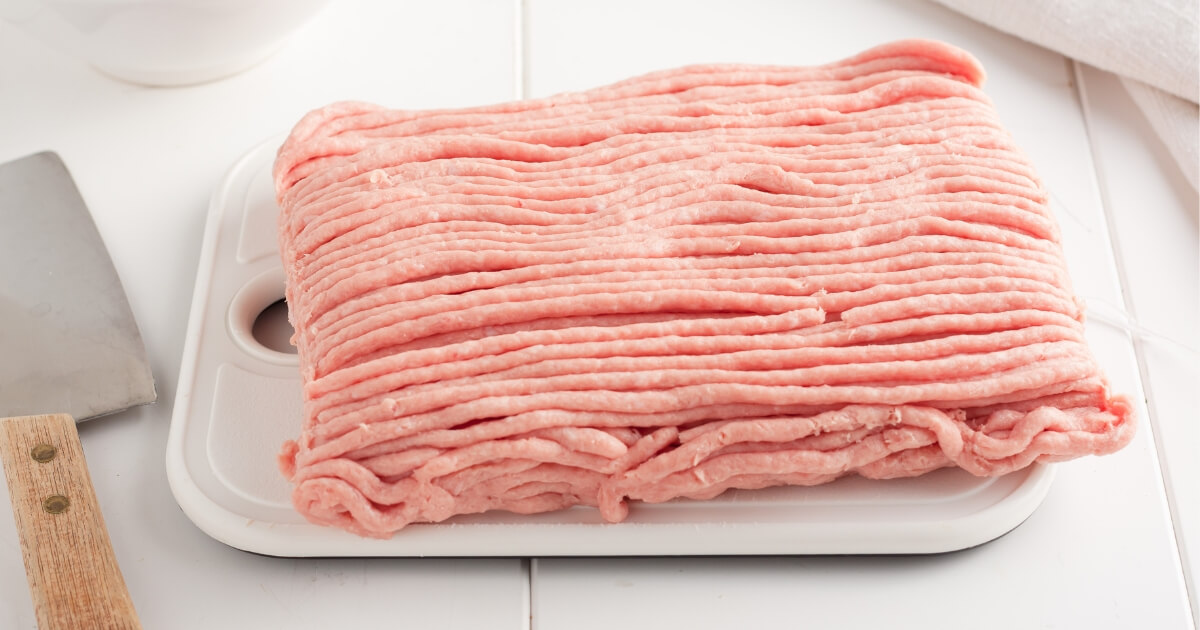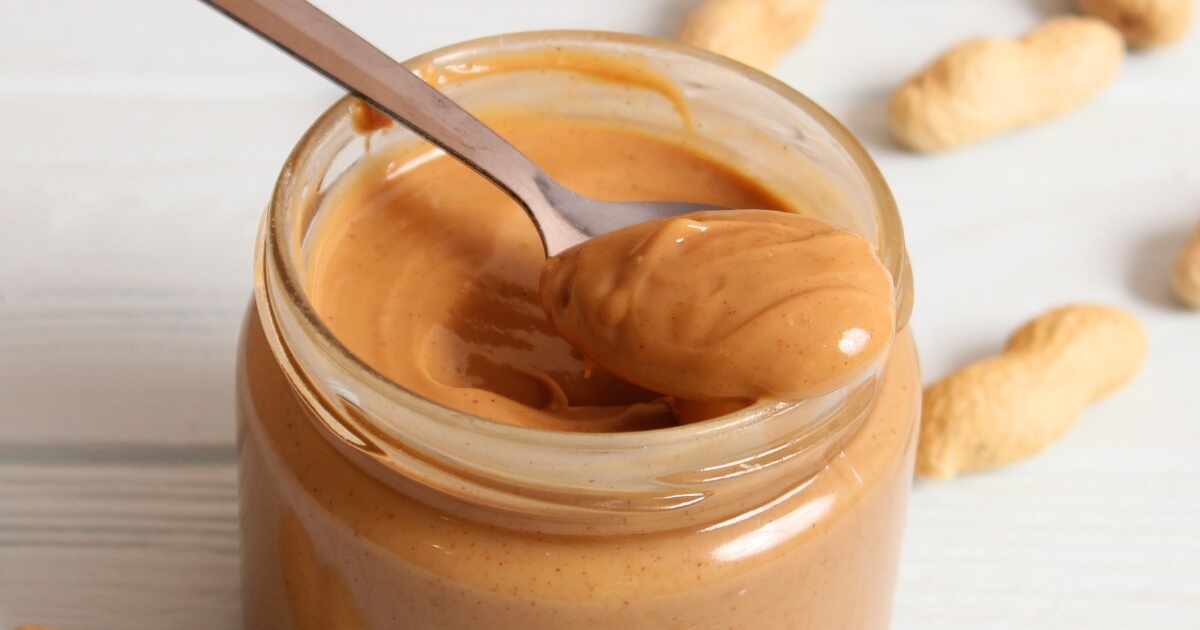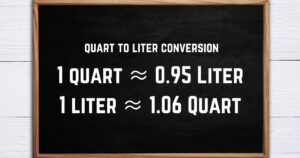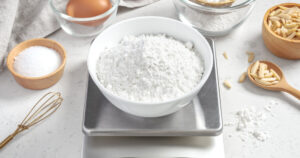When I think of vinegar, I think of using it as a pickling agent or a cleaner, so the thought of it actually going bad in the cupboard seems strange.
How do you use vinegar in your kitchen, and do you ever worry that it might expire in the pantry?
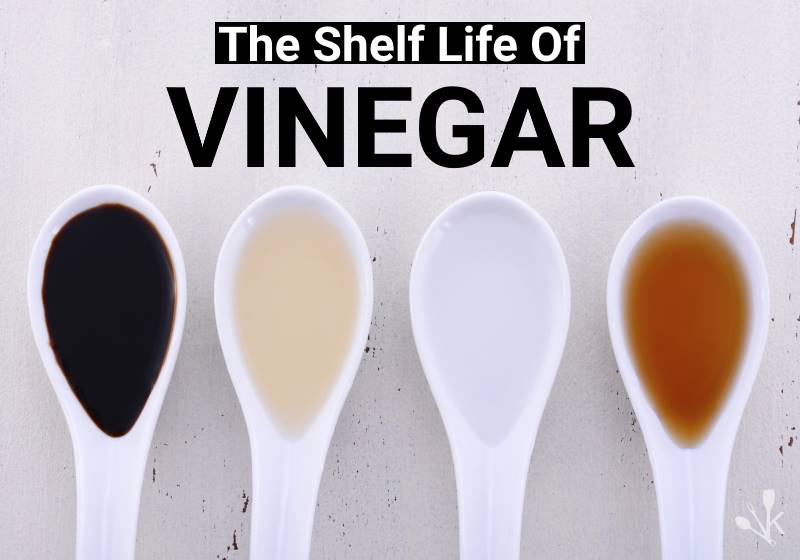
There are many varieties of vinegar and depending on how it is stored, vinegar can indeed go bad. Let’s look at the different types and how long they can be stored before they need to be thrown out.
Vinegar Shelf Life & Expiration Dates
Thanks to the fermentation process that creates vinegar, all varieties last quite a long time, but the specific shelf life of vinegar depends on the type of vinegar and how it’s stored.
Raw or homemade vinegar can also spoil, but in this article, we focus on store-bought vinegar.
White Vinegar
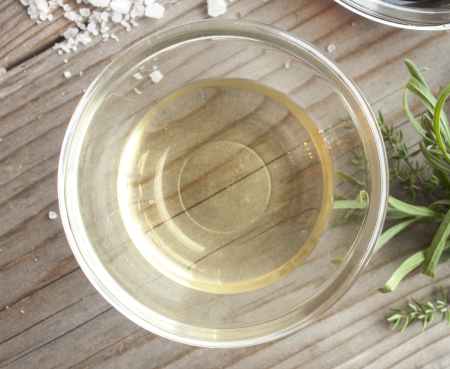
White vinegar has a shelf life that is almost indefinite. Of all the varieties, it lasts the longest and almost never goes bad, because of the fermentation that makes it acidic and therefore self-preserving.
It does not require refrigeration and can remain unchanged for an extended period, whether opened or unopened.
Apple Cider Vinegar

Apple cider vinegar has a long shelf life as well, but its quality will deteriorate over time, especially after opening. This can be noted by a change in flavor, or by the product becoming hazy or cloudy, but it’s still safe to use.
Properly stored, it generally stays at its best quality for about two years, although it’s safe to use almost indefinitely.
Balsamic Vinegar

Balsamic vinegar will last for years – as long as it isn’t stored with the cap off – but its quality can deteriorate. To maximize its shelf life, keep the lid on tight and store it in a dark place like a pantry.
Its quality stays best for about three years after opening, but it will keep for years beyond that.
Not sure which brand to choose? See our guide about the best balsamic vinegar options on the market that covers budget and high end products.
Red Wine Vinegar
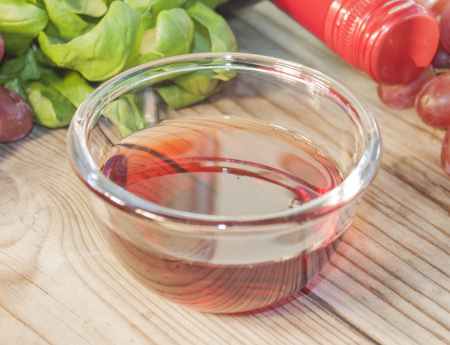
Red wine vinegar keeps best quality for about two years after opening, but it can be safely used indefinitely. It will turn cloudy over time as its quality deteriorates, but it’s safe to use even after that happens.
If you are particular about flavor, you may notice deterioration beyond two years and may want to purchase a fresh bottle.
Rice Vinegar
Rice vinegar will last several years in the pantry, as long as it stays clear in color, but its flavor will deteriorate after two years. If there is any discoloration of the vinegar, it’s best to discard it.
Malt Vinegar
Malt vinegar also lasts indefinitely, although its quality will start to deteriorate after two years and it may become cloudy. It’s still safe to use if this happens.
Most vinegar has a “best before” date printed on the container, but it is usually fine past this date if stored properly.
It should be noted that vinegar extends the shelf life of other foods – such as when used to pickle cucumbers – but it does not make their shelf life indefinite.
How To Tell If Vinegar Is Bad
While most vinegar lasts indefinitely, some vinegar can turn bad. For instance, rice vinegar is made from fermented rice and can eventually expire. You will be able to tell it’s bad if:
- It turns a yellowish color.
- It has a rotten smell.
- It has mold growing on the surface (which is very rare).
If you detect any of these anomalies, throw it out and buy a new one.
Other kinds of vinegar turn cloudy, may get sediment in them, and their flavor deteriorates over time, but it’s very rare for vinegar to spoil.
You may find something floating in your vinegar that looks scary. Apple cider vinegar, for instance, is often sold with the “mother,” which is the bacteria that feeds on alcoholic liquids and can be used to make more vinegar. The mother is harmless.
For flavorful vinegar like balsamic, which are tasty additions to salad dressings, you may want to track the “open date” on the bottle and replace it after two years, simply to ensure the best flavor.
A tell-tale sign that it may be time for a new bottle is when the lid begins to rust due to contact with the acidic nature of vinegar.
Can Mold Grow In Vinegar?
It would be very unusual for molds to grow in vinegar due to its acidic nature. However, it is possible in the case of rice vinegar, which is made from fermented rice, but it is very rare.
Does The Acidity Of Vinegar Go Down?
It is possible for the acidity of vinegar to decrease. Over time, vinegar absorbs water from the air, which dilutes its concentration. This can lower its acidity, so it’s important to keep it sealed tightly. Also, eventually the acetic acid slowly decomposes, which can lower the acidity.
Can Expired Vinegar Make You Sick?
Vinegar is an inexpensive pantry item, so despite the fact that it’s very rare for it to go bad, it’s probably best to throw it out and get a new bottle if you have any doubts about its quality.
If exposed to air, moisture, or heat, left unopened or stored for many years, or if the color or smell seems off or if the lid has rusted, it’s best to just get a new bottle.
How To Store Vinegar
With all vinegar, it’s best to store it in a cool, dark place, in its original airtight container.
A pantry or cupboard away from heat sources is best!
Be careful not to store it above your stove or range, near the microwave, or near the dishwasher. All these appliances will introduce heat and moisture, which will impact the quality and could impact the shelf life, particularly of those varieties other than white vinegar.
Also, ensure that vinegar is stored in a glass or food-safe plastic bottle. If it’s moved into a copper, brass or aluminum container, this will cause problems – the acetic acid in vinegar will corrode the metal. This can cause the formation of acetates, which are harmful. The reaction will also reduce the acidity of the vinegar.

